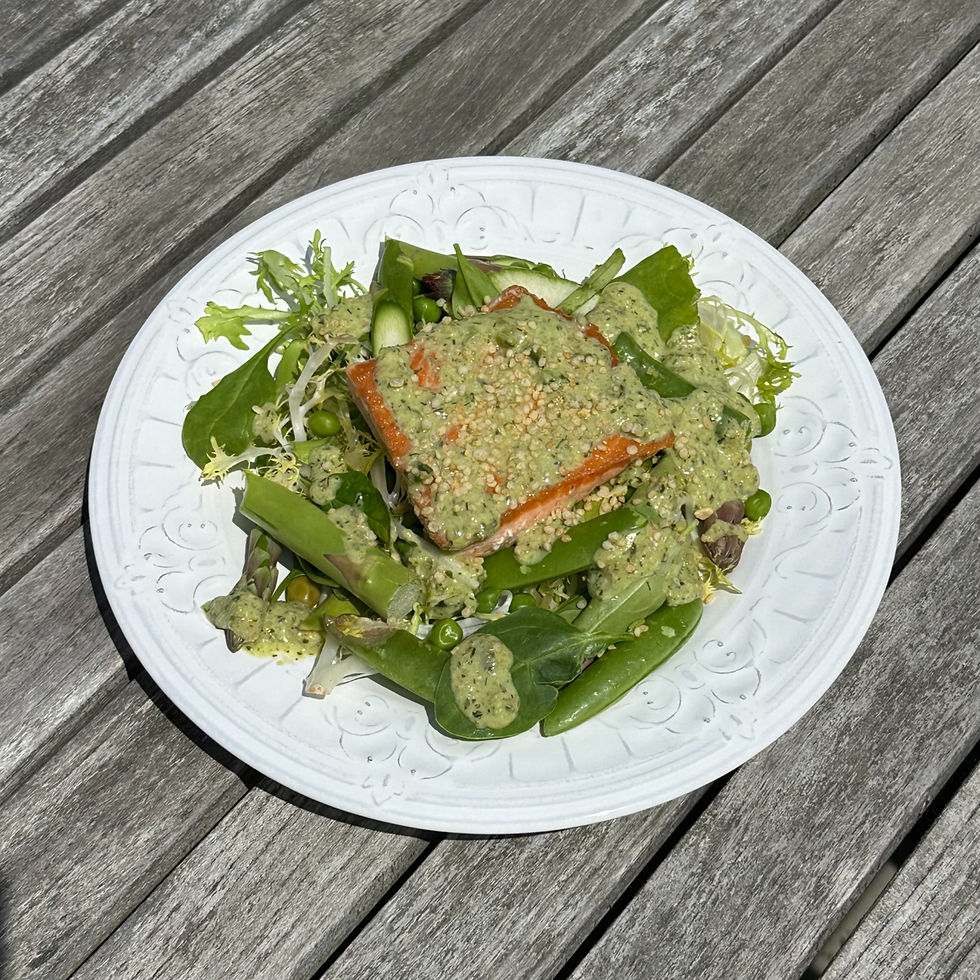- Amélie Daire
- May 29, 2025
- 3 min read
It’s hard to remember a time when being thin wasn’t held up as the ultimate measure of health. I (and many others) grew up surrounded by a culture that glorifies thinness and disguises it as wellness. The language may change over time (clean eating! balance! gut health!), but the message stays the same. And that messaging is loud and in recent times has become deafening: smaller is better, and control is power.
What’s beyond scary is how easy it is to internalize this message even when you think you know better. I consider myself someone who’s done the work. I’ve struggled with more than my fair share of food issues in the past and now study health communication and advocate for wellness without obsession, so I’ve learned to spot the glaring red flags along the way. And still, I’ve fallen into the trap. I’ve joined a gym program that encouraged 1200-calorie meal plans in the name of “health.” I've clicked on the “skinny” content. I can't believe I'm admitting this, but at one point about a year ago I was even subscribed to the infamous Liv Schmidt’s horrifically toxic weight-loss subscription group chat in the name of “accountability.” At the time, it felt exclusive, aspirational, and even empowering. But I look back and realize it was all just a polished package of incredibly harmful messaging.
Because that’s the thing, it’s SO tempting. Even when you know better. And it’s everywhere, it’s not just in the diet programs or before and after photos. This messaging is hidden in what I eat in a day videos, in gut health supplements, in soft-toned influencer posts about “resetting” or “getting back on track.” It’s hidden in the drastic rise of GLP-1 medications like Ozempic, wrapped up in the new aesthetic of “wellness” that still, once you dig down to its core, is oftentimes about control and being small.
And the thing is, this messaging is everywhere. You don’t even have to be deep in the online health and wellness world to absorb it. It’s in passing conversations, in family dynamics, in casual comments that feel normal but are actually deeply rooted in diet culture. Just last week during a trip to the Hamptons, my mom would emphasize her belief that she needed to “cut carbs” every single time we went out to eat. At one point, she refused a second carrot stick because she needed to “cut back.” A waitress at one of the restaurants we went to for dinner joked, “I get it, it’s bikini season,” when we passed on dessert. And in the moment, I try my best to brush it off… but when you zoom out, it’s beyond exhausting and simply heartbreaking how ingrained this thinking is.
I think back to that gym program promoting 1200-calorie meal plans from influencers with no credentials, disguised as “healthy” and “balanced.” At the time, I truly believed I was doing something good for my body, finally losing weight the “right” way. But it wasn’t health. It was restriction, fear, and control, dressed up in wellness language. It’s taken SO much work to unlearn that, and honestly I’m still doing the work and far from being healed. I’m working to unlearn these thoughts and finally achieve food freedom, and while it’s been incredibly healing, it’s also deeply challenging. Because when the world around you continues to praise shrinking yourself, when comments from loved ones and strangers reinforce the same old stories, it’s SO hard not to fall back into the patterns you’re trying desperately to leave behind.
But I’m learning. Relearning. Coming back to a place where food is nourishment, movement is joy, and health is about wholeness, not weight. I’m not sharing this because I’ve figured it all out, because I sure as hell haven’t. I’m sharing this because if you’re also starting to question what we’ve been sold, if you’re choosing healing over hustling for the perfect body, you’re not alone. And in a world that praises diet culture, making that choice is doing something radical.






